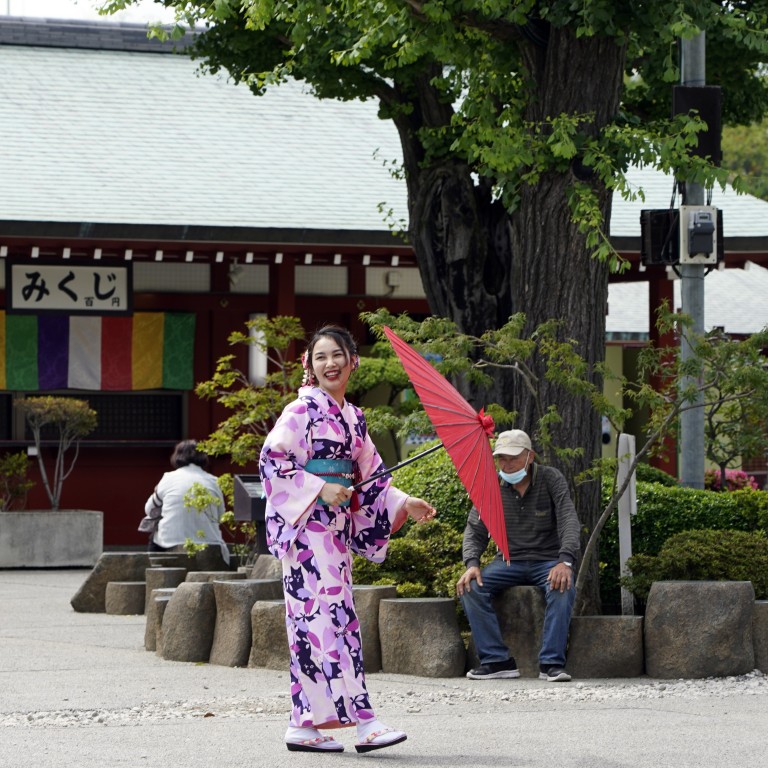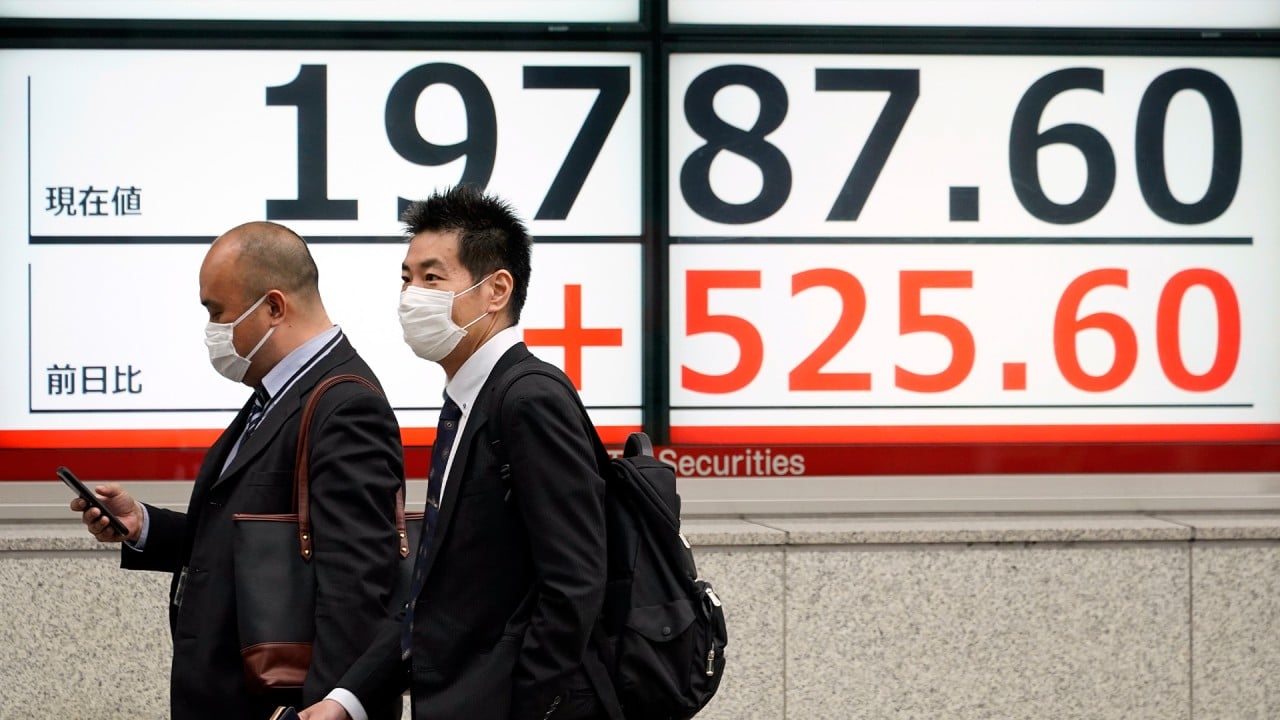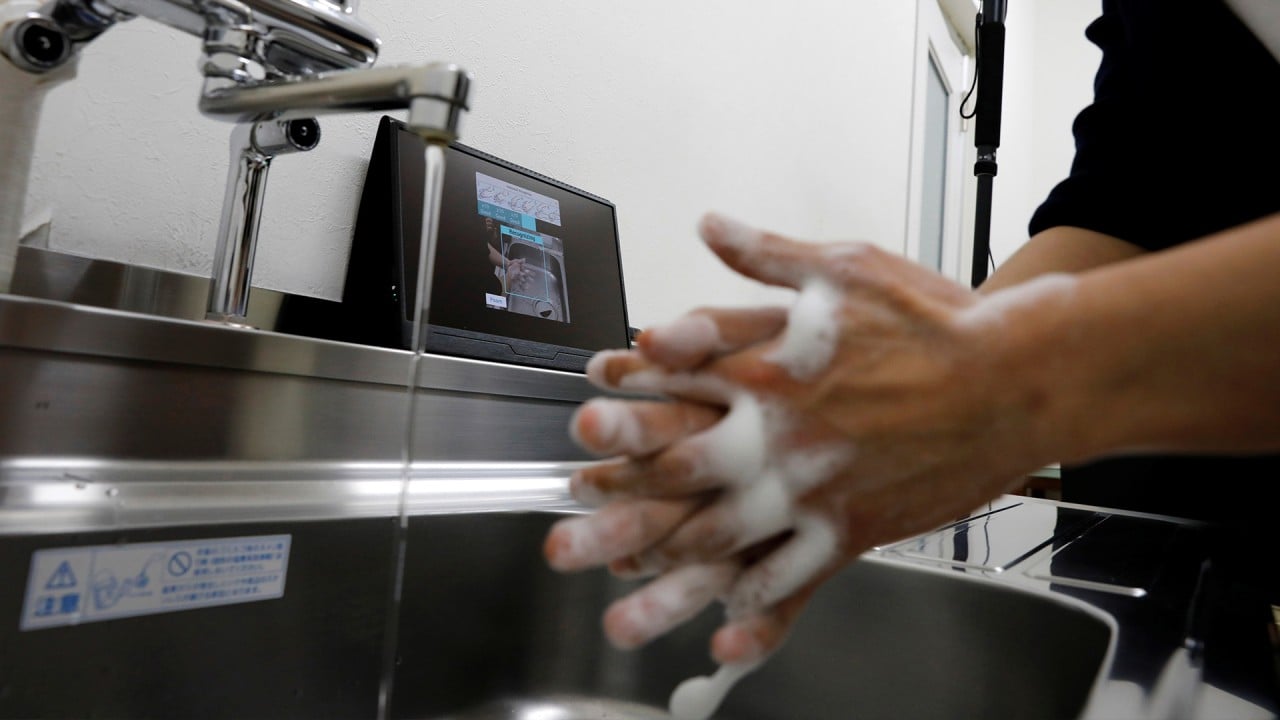
How the coronavirus may change Japan for good
- The government’s new growth strategy to promote digitisation and diversity at work aims to shift the economy onto surer footing, following Covid-19 blows to its tourism and hospitality sectors
- Plans to move the production lines of Japanese companies out of China and greater cooperation with the US will also weigh on relations with Beijing
On July 3, the Japanese government presented a new growth strategy to tackle the requirements of the post-coronavirus era. It seeks to promote “cashless payments and diverse workstyles”, among other things. One way to do so would be by slashing interbank transfer fees, seen as an impediment to cashless transactions. In addition, the Abe government is toying with a series of other measures to boost the economy in the aftermath of the coronavirus setback.
That said, Covid-19 is bound to have a long-lasting impact on the economy and society as a whole.
This marks a major policy shift for Japanese industry, as it had been taking advantage of low labour costs in China. The shifting of some production lines away from China means their production costs will increase, thereby eating into their profit margins.

01:11
Japan’s economy gets US$1.1 trillion stimulus after coronavirus state of emergency ends
The drop has been a blow to the hospitality sector. As tourist arrivals are unlikely to pick up in the short term, capacity in the sector will remain underutilised for some time. This will have a big impact, especially in the rural hinterlands that depend on tourism revenues, as many young people in these areas have moved to urban centres.
In addition, the construction sector is likely to take a hit, given the postponement of the Olympics and Paralympics.
National security law: for Japanese, a chance to ‘poke red China’?
Meanwhile, the post-pandemic period may well see greater cooperation between the US and Japan on the security front. As Shinzo Abe nears the end of his term as prime minister, he might speed up efforts to implement constitutional reform, a move opposed by China and South Korea, among others.
On the social front, the wearing of masks is going to be even more commonplace in the country. Japan has always placed a high emphasis on cleanliness and this may have helped it escape the worst of the contagion. In addition, digitisation will increase since, like all countries, the Japanese government will try to reduce close-contact physical activities. That will be easier said than done, since Japan has been heavily dependent on cash.

01:28
Japanese AI checks workers for proper handwashing amid coronavirus pandemic
The government has emphasised the importance of avoiding the three C’s – closed spaces, crowds and close contact – to prevent or at least slow down the spread of the pandemic. Hence, traditional Japanese work methods will also see a change as companies adapt to remote working.
On the positive side, this should help improve the work-life balance for many in Japan, where employees are expected to work long hours, often at the cost of their family life.
However, like other nations, Japan will remain vulnerable to future waves of Covid-19, especially since it is an ageing society where more than 28 per cent of its citizens are 65 and older.
All said and done, the post-pandemic era may well see a fundamental overhaul of Japanese society and the economy. But then, Japan has undergone a number fundamental shifts in the past – after World War II, for example – and has actually come out stronger.
Dr Rupakjyoti Borah is a senior research fellow with the Japan Forum for Strategic Studies, Tokyo. His books include The Elephant and the Samurai: Why Japan Can Trust India. The views expressed here are personal

